Jonathan Swift’s Gulliver’s Travels
Revisit the quarrel between "the ancients and the moderns" and reflect on human nature with Swift's Gulliver's Travels.
July 8 – July 21, 2018
WASHINGTON, D.C.
This two-week course explores the contributions of literature and rhetoric to the study of politics.
The first week, led by Professors Benjamin and Jenna Storey, will examine Plato’s meditation on eros in the Symposium and the natural connections between love, ambition, and fidelity to the polity. What is the relation of the love of beauty, sexual pleasure, and education to virtue? How does eros relate to moral excellence, and to moral failure? Is political ambition an extension or betrayal of the love for another human being? What exactly do we desire from erotic partnership—do lovers seek to complete themselves by merging with their “other halves,” or is love ultimately a longing for immortality that no other human being could satisfy? Peopled by political figures implicated in both the greatness and the collapse of Athens, the Symposium invites its readers to investigate the complexity of properly ordering our loves, an endeavor necessary both to fulfilling private lives and to a strong and decent public order.
The second week, led by Professor Paul Cantor, will study Shakespeare’s Roman plays to explore the interaction between man and city, each taken to its dramatic height. From classical antiquity down to the eighteenth century and such thinkers as Montesquieu and the American Founding Fathers, Rome has been one of the perennial themes of political theory. Shakespeare’s Roman plays (Coriolanus, Julius Caesar, and Antony & Cleopatra) are his contribution to the longstanding debate about Rome, and also occupy a very important place in his comprehensive understanding of the human condition. The plays are evidence of the crucial importance of politics in Shakespeare’s view of human nature, as well as of his sense of the limits of politics.
Images: Anselm Feuerbach, Plato’s Symposium, 1874 | Vincenzo Camuccini, The Death of Caesar, 1805
Paul Cantor on Shakespeare's Rome
This two-week course will take place in Washington, DC. It is a full-time commitment for Monday–Friday, with required sessions in the morning, afternoon, and some evenings.
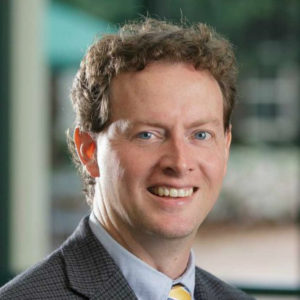
Benjamin Storey is Associate Professor of Politics and International Affairs at Furman University. His interests focus on the history of political philosophy. He is currently completing a book entitled The Restless Age: Four French Thinkers on the Quest for Self-Understanding in an Unsettled Modernity.

Benjamin Storey is Associate Professor of Politics and International Affairs at Furman University. At Furman, he is Co-Founder and Co-Director of the Tocqueville Program, which aims to revivify traditional liberal education in a modern context.
His publications have appeared in First Things, The New Atlantis, The Weekly Standard, The Claremont Review of Books, Doublethink Quarterly, The Journal of Politics, The Review of Politics, Perspectives on Political Science, and Society. He recently co-authored a book with Jenna Silber Storey entitled Why We Are Restless: On the Modern Quest for Contentment.
In 2016-2017, he was a Visiting Fellow at the James Madison Program in American Ideals and Institutions at Princeton University. He is the winner of Furman’s 2016 Meritorious Teaching Award, and of the 2011 “American Scholar” Award given by Furman’s chapter of Phi Beta Kappa.
He received his MA and PhD from the Committee on Social Thought at the University of Chicago, and his BA in History from the University of North Carolina at Chapel Hill.
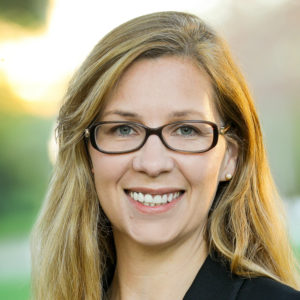
Jenna Silber Storey is Assistant Professor in Politics and International Affairs at Furman University and Executive Director of Furman’s Tocqueville Program. She is the co-author of a book with Benjamin Storey: Why We Are Restless: On the Modern Quest for Contentment (Princeton University Press, 2021). Further information about her work can be found at www.jbstorey.com.

Jenna Silber Storey is Assistant Professor in Politics and International Affairs at Furman University, and Executive Director of Furman’s Tocqueville Program, an intellectual community of students and faculty who aim to reflect on contemporary issues with a perspective informed by the study of the history of political thought. She is also a Board Member of Veritas Preparatory School in Greenville, South Carolina.
Her work has appeared in edited volumes as well as The Washington Post, the Australian Broadcasting Corporation, First Things, realclearbooks, The New Atlantis, VoeglinView, The Weekly Standard, and The Boston Globe. She is the co-author of a book with Benjamin Storey: Why We Are Restless: On the Modern Quest for Contentment (Princeton University Press, 2021). Further information about her work can be found at www.jbstorey.com.
Dr. Storey received her PhD from the Committee on Social Thought at the University of Chicago, where she was a John M. Olin Junior Fellow, and her B.A. from the University Professors Program at Boston University, where she also worked as Executive Assistant to the Superintendent for the Boston University-Chelsea Schools Partnership. In 2019 Dr. Storey won the Silas N. Pearman award for teaching in Furman’s first-year Engaged Living Program.
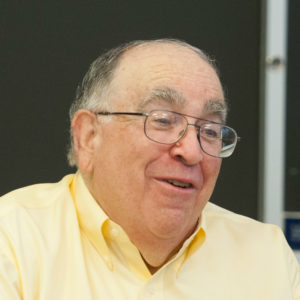
Paul Cantor is the Clifton Waller Barrett Professor of English and Comparative Literature at the University of Virginia. He has written on a wide range of subjects, including Shakespeare, Romanticism, Austrian economics, and contemporary popular culture.

Paul A. Cantor is Clifton Waller Barrett Professor of English and Comparative Literature at the University of Virginia, where he has taught since 1977.
From 1992 to 1999, Cantor served on the National Council on the Humanities, the governing board of the National Endowment for the Humanities. He has published extensively on Shakespeare, including his books Shakespeare’s Roman Trilogy (University of Chicago Press, 2017), Shakespeare’s Rome: Republic and Empire (Cornell, 1976), and the Hamlet volume in the Cambridge Landmarks of World Literature series (Cambridge University Press, 1989, 2004). He has also published essays on The Merchant of Venice, Henry V, As You Like It, Hamlet, Othello, Macbeth, King Lear, Timon of Athens, Antony and Cleopatra, and The Tempest, as well as on general issues of Shakespeare criticism.
In addition to Shakespeare, he has written about other English Renaissance dramatists, including Christopher Marlowe, Ben Jonson, Cyril Tourneur, and John Ford. Among the other fields he has worked in are British Romantic literature and American popular culture. His book Gilligan Unbound: Pop Culture in the Age of Globalization (Rowman & Littlefield, 2001) was named one of the best nonfiction books of 2001 by the Los Angeles Times. In the Fall of 2007 and 2012, Cantor was a Visiting Professor of Government at Harvard and taught a course on Shakespeare and Politics, which he also taught in the Spring of 2015.
Cantor received his BA in 1966 and his Ph.D. in 1971 from Harvard University, where he was an assistant professor of English from 1971 to 1977.
Readings:
Discussion Questions:
Readings:
Discussion Questions:
Readings:
Discussion Questions:
Readings:
Discussion Questions:
Readings:
Discussion Questions:
Recommended Reading:
Shakespeare and Politics, The Great Thinkers
Readings:
Discussion Questions:
Readings:
Discussion Questions:
Readings:
Discussion Questions:

Ryan P. Hanley
Ryan Patrick Hanley is Professor of Political Science at Boston College. His research in the history of political philosophy focuses on the Enlightenment. He is the author of Our Great Purpose: Adam Smith on Living a Better Life and Love’s Enlightenment: Rethinking Charity in Modernity.
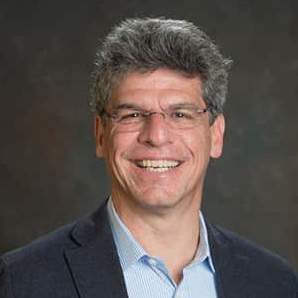
Jacob Howland
Jacob Howland is McFarlin Professor of Philosophy Emeritus at the University of Tulsa. He has written about Plato, Aristotle, Xenophon, Kierkegaard, the Talmud, the Holocaust, ideological tyranny, and other subjects. His most recent book is Glaucon’s Fate: History, Myth, and Character in Plato’s Republic.
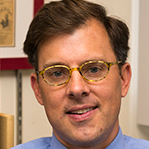
Flagg Taylor
Flagg Taylor is an Associate Professor of Government at Skidmore College. He is editor most recently of The Long Night of the Watchman: Essays by Václav Benda, 1977–1989. He is currently writing a book on Czech dissent in the 1970s and 1980s.
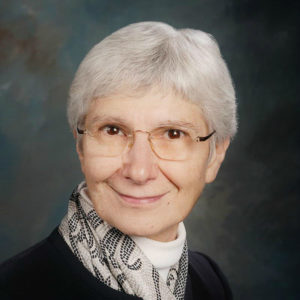
Amy A. Kass
Amy Apfel Kass (1940 – 2015) was a senior fellow at the Hudson Institute, Senior Lecturer Emerita in the humanities at the University of Chicago, and coeditor of What So Proudly We Hail: The American Soul in Story, Speech, and Song. She was an award-winning teacher of classic texts.
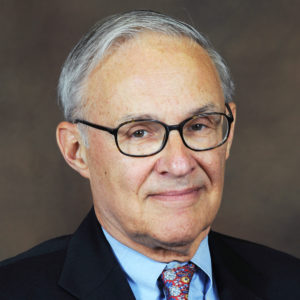
Leon R. Kass
Leon R. Kass, M.D., is the Madden-Jewett Scholar at the American Enterprise Institute and Harding Professor Emeritus in the Committee on Social Thought at the University of Chicago. From 2001 to 2005, he was chairman of the President’s Council on Bioethics.
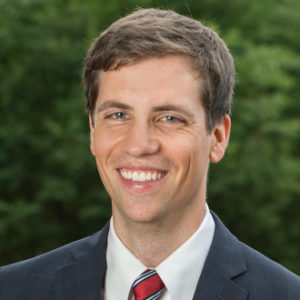
Antón Barba-Kay
Antón Barba-Kay is Associate Professor of Philosophy in the School of Philosophy at the Catholic University of America in Washington, D.C. He is finishing a book on the political philosophy of the internet, which he began while a Visiting Fellow in the James Madison Program at Princeton University.
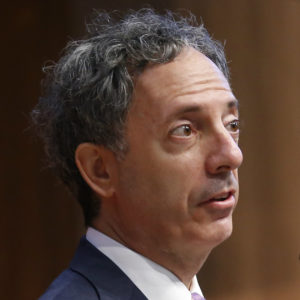
Peter Berkowitz
Peter Berkowitz is the Tad and Dianne Taube Senior Fellow at the Hoover Institution, Stanford University. He studies and writes about, among other things, constitutional government, conservatism and progressivism in America, liberal education, national security and law, and Middle East politics.